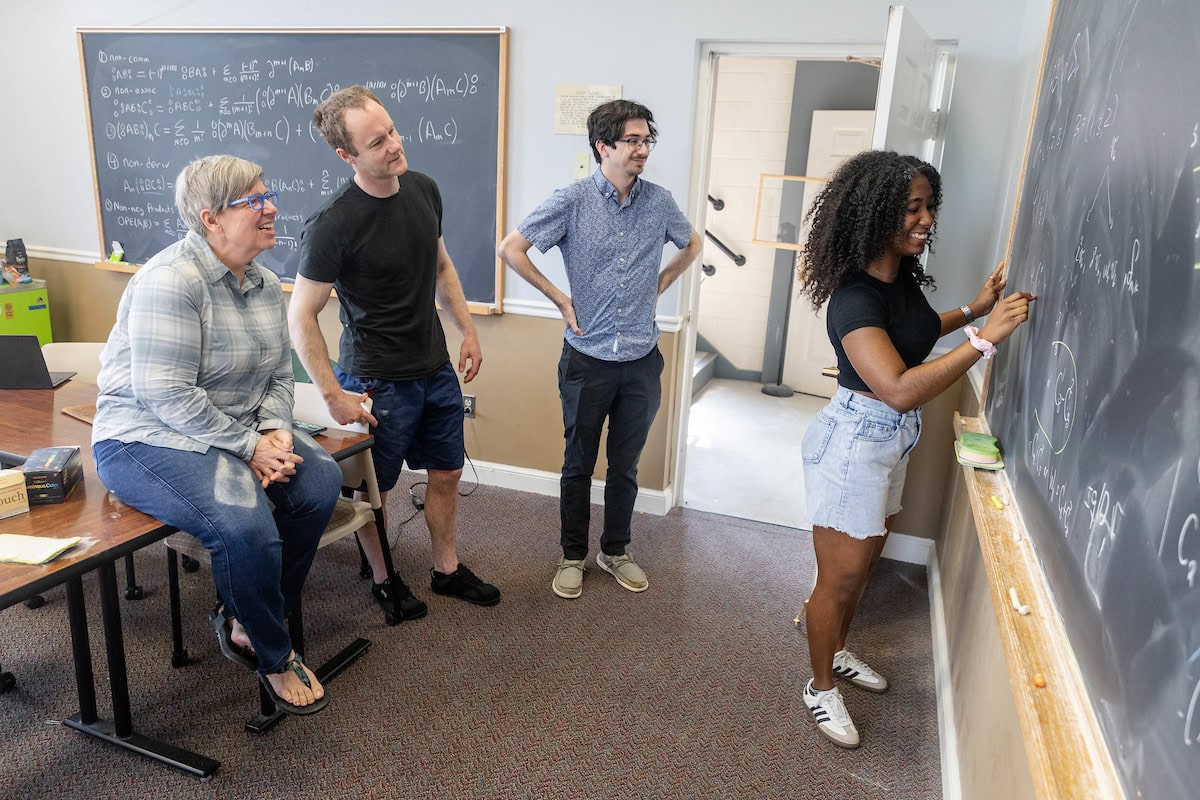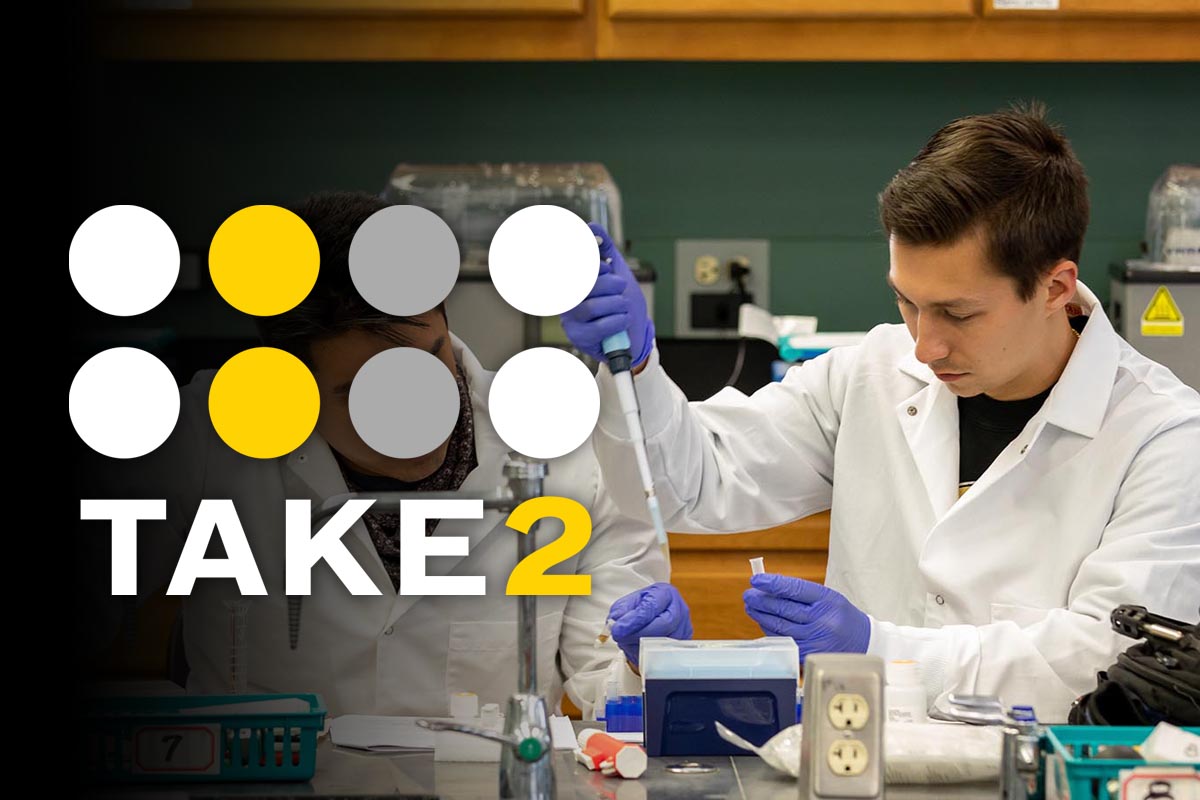Students dive into the complex world of vertex algebras for summer research
Randolph’s Summer Research Program is a competitive, paid program that pairs students with faculty members to conduct research in their areas of interest. This story is part of an ongoing series featuring their work on campus this summer.
Vertex algebras serve as a bridge between seemingly unrelated areas of mathematics and quantum physics—from number theory to string theory.
Professors Michael Penn and Katrin Schenk are using Randolph’s Summer Research Program to study the complex structure of these algebras.
“In my own research, I save a lot of problems that come up and seem doable for a project like this,” Penn, a mathematics professor, explained. “It’s based on this idea that humans like symmetry. This project looks at symmetries inside of a modern mathematical setting.”
Because the topic falls in the area of mathematical physics, Penn teamed up with Schenk, a physics and engineering professor, math major Colton Francis ’26, and physics major Danielle Nunez ’27.
“I was really interested in learning something completely new, and it’s been a lot of fun,” Schenk said. “Being on that steep part of a learning curve is exactly where I like to be.”
Algebra, for the purpose of their project, isn’t the kind learned in middle school with x’s and y’s. In higher math, it’s a set of building blocks with rules for how they fit together.
“They can be very different sets with very different rules,” Schenk said. “We’re trying to figure out what symmetry does to those structures.
“We’re thinking about that kind of symmetry inside algebraic structures,” she added. “If we flip or rotate the algebra a certain way, are there parts that stay the same?”
Most of their work so far has been identifying those symmetries. They hope to also create a database of vertex operator algebras that would be useful for students learning the subject, as well as researchers.
It’s an ambitious project that Francis and Nunez eagerly took on.
“I like doing hard things, and this is really, really hard,” Francis said. “I’m a pure math major, so I’m not planning to go into applied mathematics. For me, long-term, I want to be doing exactly what Dr. Penn does.”
For Nunez, the project is a chance to stretch her skills and figure out what kind of physicist she wants to be.
“I want to see where my interest lies, if it’s more on the hardware side or the theoretical physics side,” she said.
Tags: Engineering Physics, math, mathematics, physics, summer research 2025

